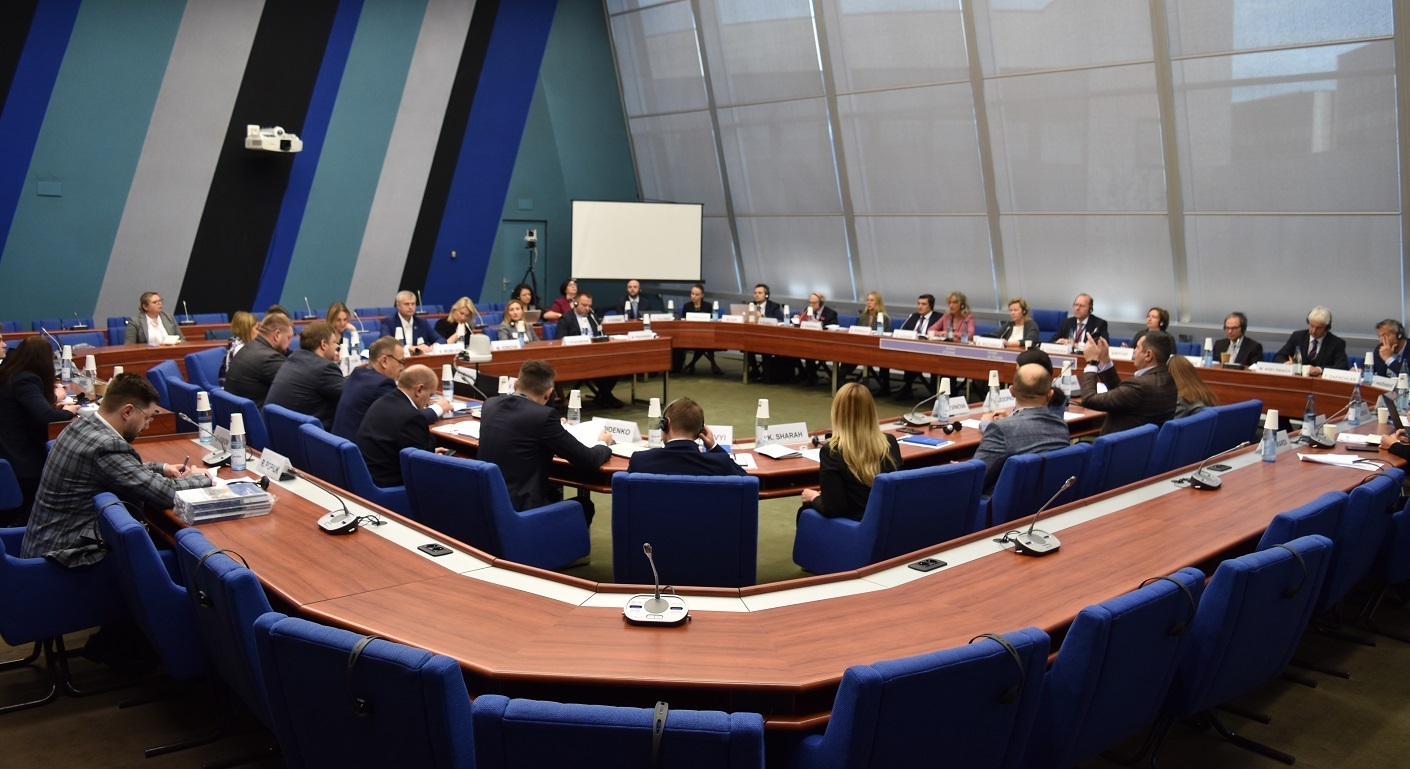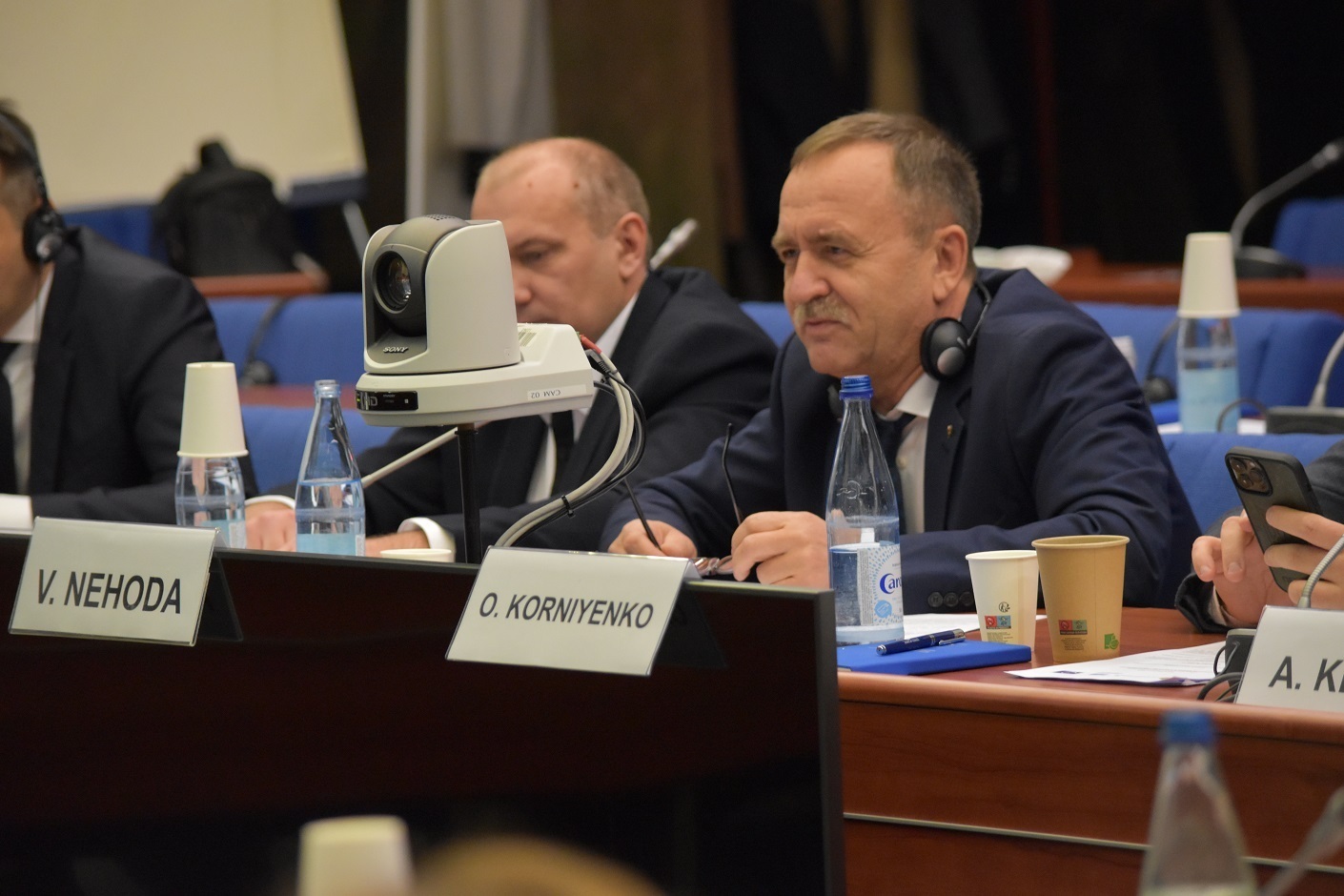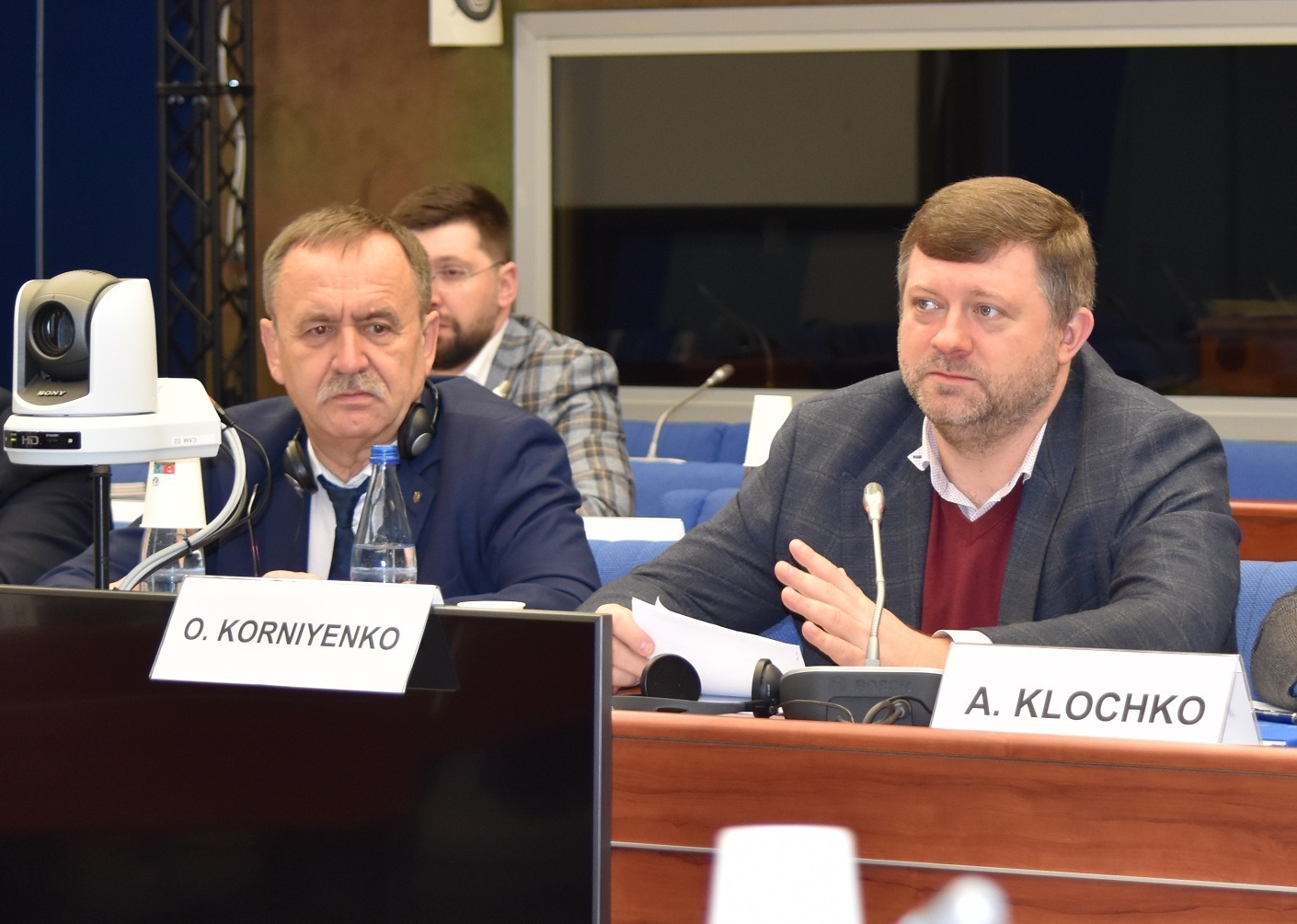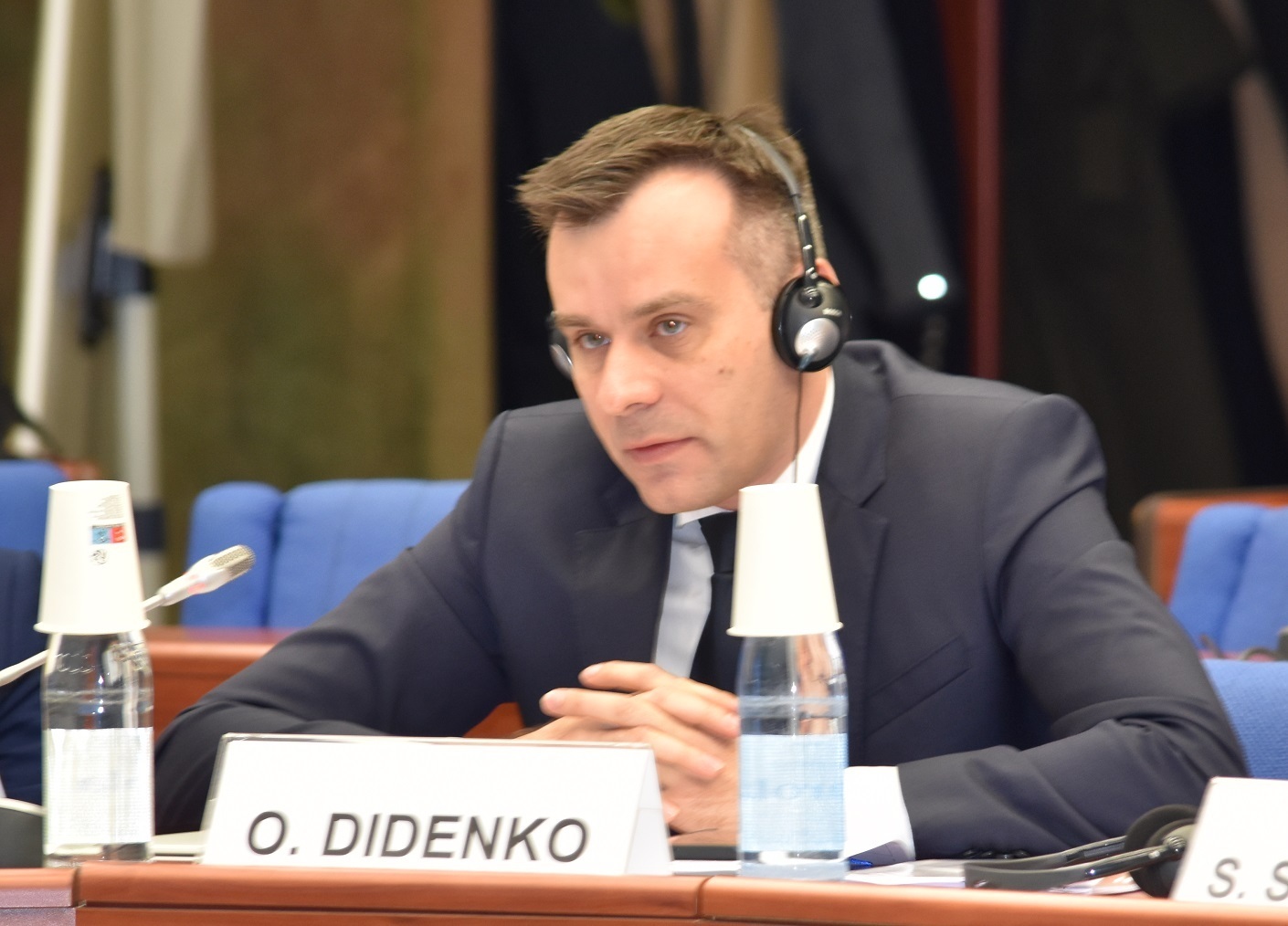After the war, local self-government in Ukraine will reach a new level. Outcomes of High-Level Dialogue in Strasbourg
The High-Level Dialogue on democratic governance in Ukraine is ending today in Strasbourg (France). Ukrainian government officials, MPs and heads of associations of local self-government bodies spoke with representatives of the Council of Europe about the achievements and challenges of governance in Ukraine, further development of local self-government, organisation of elections and the electoral rights of citizens in post-war Ukraine.
“After all the dialogues held in Strasbourg, I feel that this work will be a powerful incentive for the development of local self-government in Ukraine and further democratic changes as well as give us grounds for strengthening cooperation between Ukrainian and international institutions to solve all problem issues,” Vyacheslav Nehoda, Deputy Minister for Communities and Territories Development of Ukraine, said at the briefing.
He reminded that the Reform of Local Self-Government and Territorial Organisation of Power — decentralisation — was recognised by the Council of Europe, the institutions of the European Union as well as by other countries as one of the most successful reforms in Ukraine.
“Unfortunately, the war threw a wrench into our plans to complete the reform. The challenges faced by us and the entire civilized world today force us to look for new solutions, new models and a new vision of local democratic development. In the future, we must take into account the experience of this war and the reasons that led to it. For a while, we were complacent, considering democracy protected. Now the whole world has seen that democracy needs constant protection,” noted the Deputy Minister.
He also pointed out that despite 8 months of the ongoing war, the Ukrainian system of local self-government preserved all its democratic principles of functioning.
“We did not take away any powers from the local self-government. On the contrary, in order to solve issues on the ground more quickly and effectively, the Government and the Parliament adopted a number of decisions that additionally empower local authorities. We are also committed to balancing budgets. The 2023 state budget, despite huge defence needs and deficit, still manages to avoid creating restrictions for municipalities,” said Vyacheslav Nehoda.
According to him, Ukraine is trying to build local self-government even in wartime, and therefore will continue its efforts in the post-war period.
“Today we are talking about the future of local self-government, the future system of territorial organisation of power. I am positive that this parliamentary-government team, with the participation of representatives of associations of local self-government bodies as well as Ukrainian and international experts, will do their best to raise local self-government in Ukraine to a new, higher level after the war. In this, we also count on the help of the Council of Europe, as your expertise is not only essential for Ukraine, but will also become a invaluable resource for local authorities in other countries,” said Vyacheslav Nehoda.
The First Deputy Chairman of the Verkhovna Rada of Ukraine, Oleksandr Korniienko, also thanked the Council of Europe for its utmost expert support in addressing the issues related to governance, which the Ukrainian delegation discussed these days in Strasbourg.
“Unfortunately, the situation in Ukraine is unique. Europe has not seen such a scale of destruction, of occupied and de-occupied territories, such a number of displaced people for many decades. Our situation requires developing new approaches to the functioning of local self-government bodies, their interaction with the executive power, to the organisation and holding of local elections, etc. We are grateful that the Council of Europe is ready to assist us in finding these new approaches,” said Oleksandr Korniienko.
The Head of the Central Election Commission of Ukraine, Oleh Didenko, said that dialogues focused, among other things, on the election process in post-war Ukraine.
“No one knows when the war will end, but we have to start thinking about how to organise transparent and democratic local elections. And in this matter, we face a lot of challenges related to the security factor and a large number of displaced persons, both within Ukraine and abroad. In order to solve these complex issues, to find the best ways to ensure the free expression of will, we involve the public and our international partners and try to use all platforms for holding discussions and dialogue,” said Oleh Didenko.
The High-Level Multilateral Dialogue “Good Democratic Governance in Ukraine: Achievements, Challenges and Way Forward in the Post-War Period” is held as part of “Good Democratic Governance in Ukraine: Moving Forward in the Post-War Period”, the joint initiative of the Committee on the Organisation of State Power, Local Self-Government, Regional Development and Urban Planning, the Ministry for Community and Territorial Development, the Central Election Commission and the Council of Europe.
The initiative is aimed at improving legislation and practices to restart good democratic governance in Ukraine and is based on the priorities of the War Recovery Plan developed by the National Council under the President of Ukraine.
Tags:
V.Nehoda international support Oleksandr Korniienko
Source:
Пресцентр ініціативи "Децентралізація"
25 November 2024
Експерти проаналізували тенденції надходжень місцевих податків і зборів за 2019-2023 роки
Експерти проаналізували тенденції надходжень...
Автори: Яніна Казюк, д.держ.упр., професор, експертка з питань публічних фінансів та місцевого...
25 November 2024
Трудові відносини з непедагогічними працівниками (запис вебінару)
Трудові відносини з непедагогічними...
Про трудові відносини в освіті під час війни дізнавайтеся у записі вебінару від Швейцарсько-українського проєкту...
25 November 2024
До реєстру професійних стандартів внесли стандарт «Керуючий справами виконавчого апарату (комітету)»
До реєстру професійних стандартів внесли...
18 листопада Національне агентство кваліфікацій внесло стандарт «Керуючий справами виконавчого апарату (комітету)» до...
25 November 2024
28 листопада: експертна публічна дискусія...
28 листопада, з 15:00 до 16:30 Інститут аналітики та адвокації (ІАА) проводитиме публічну дискусію «Відбудова громад:...



